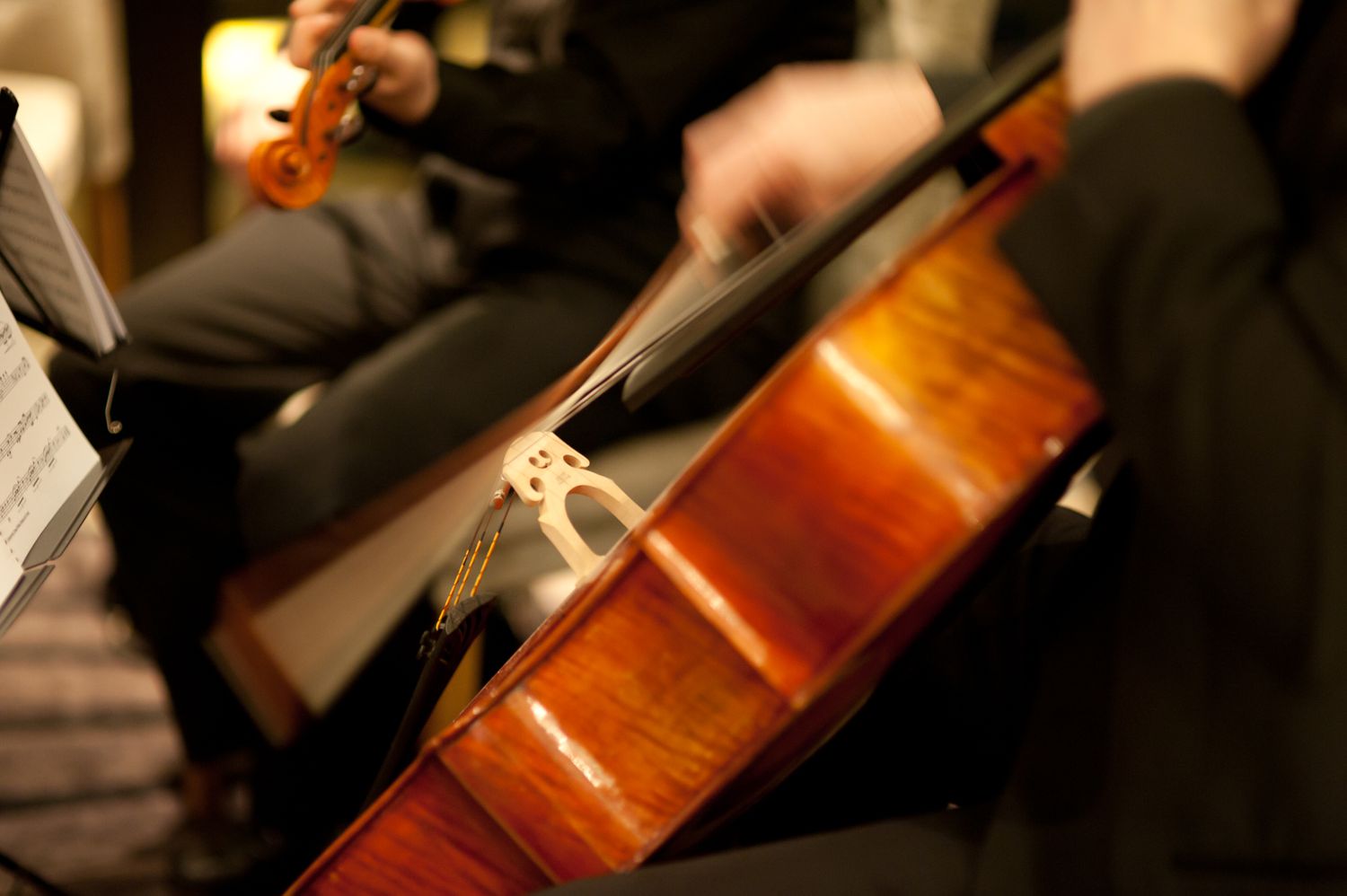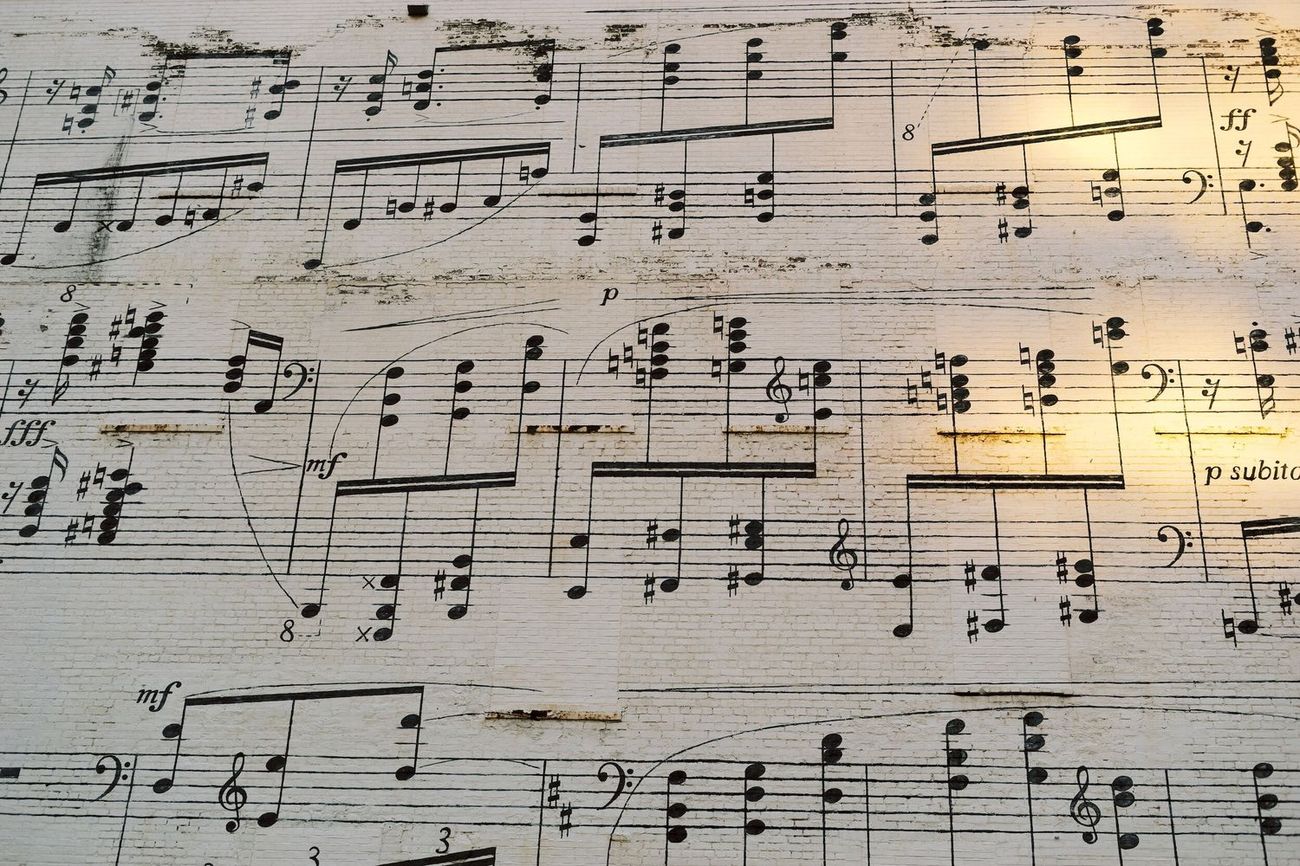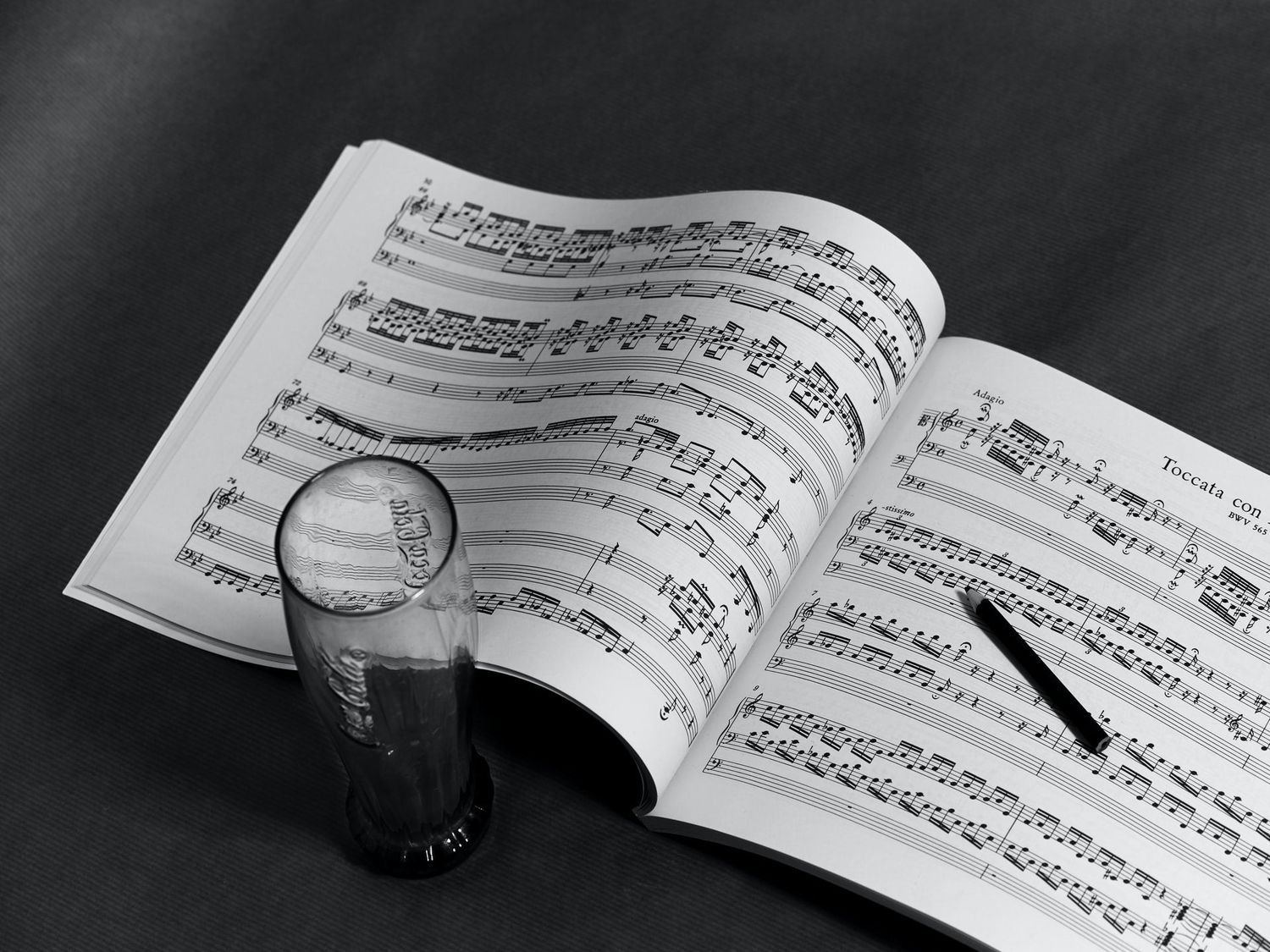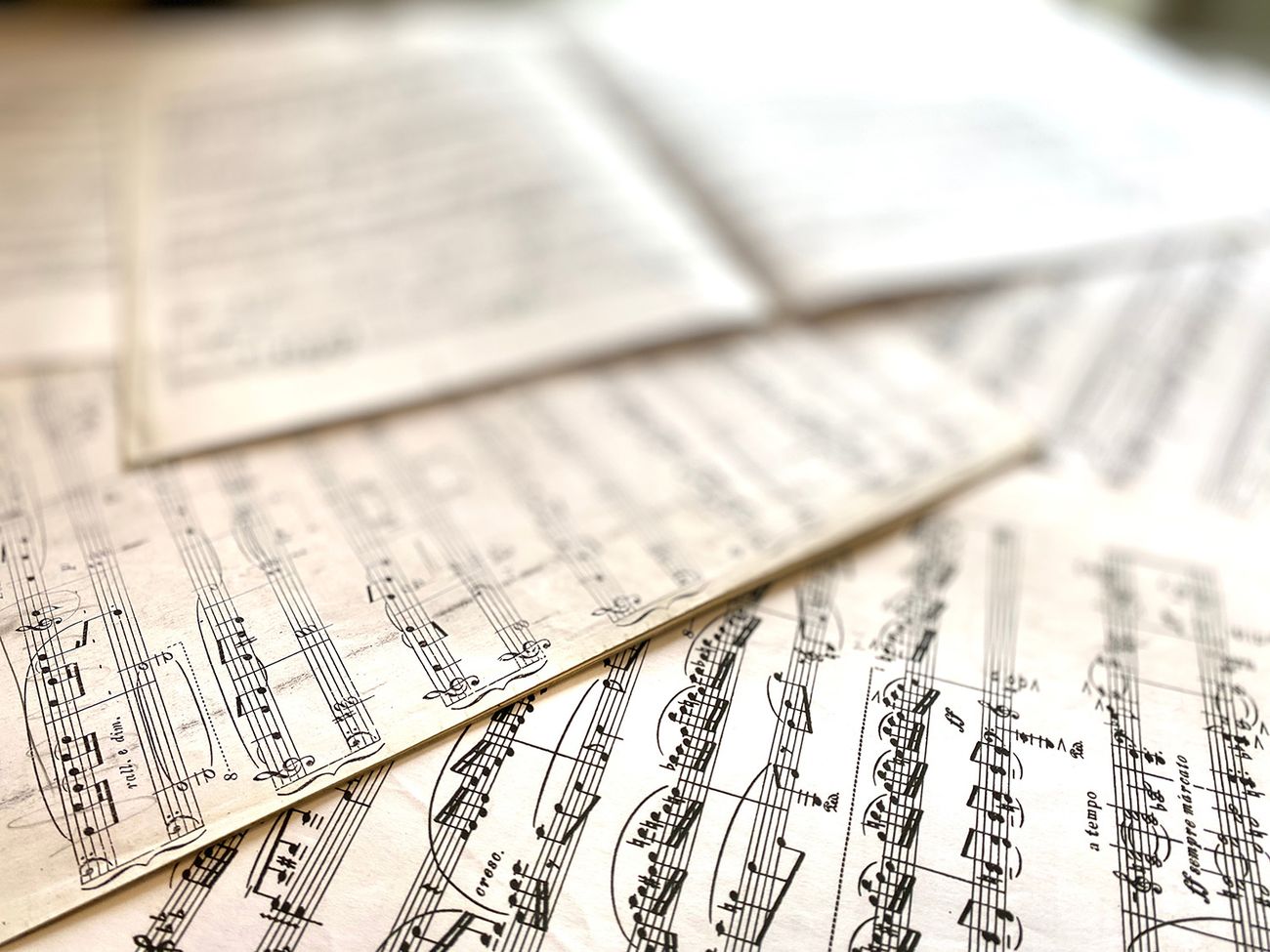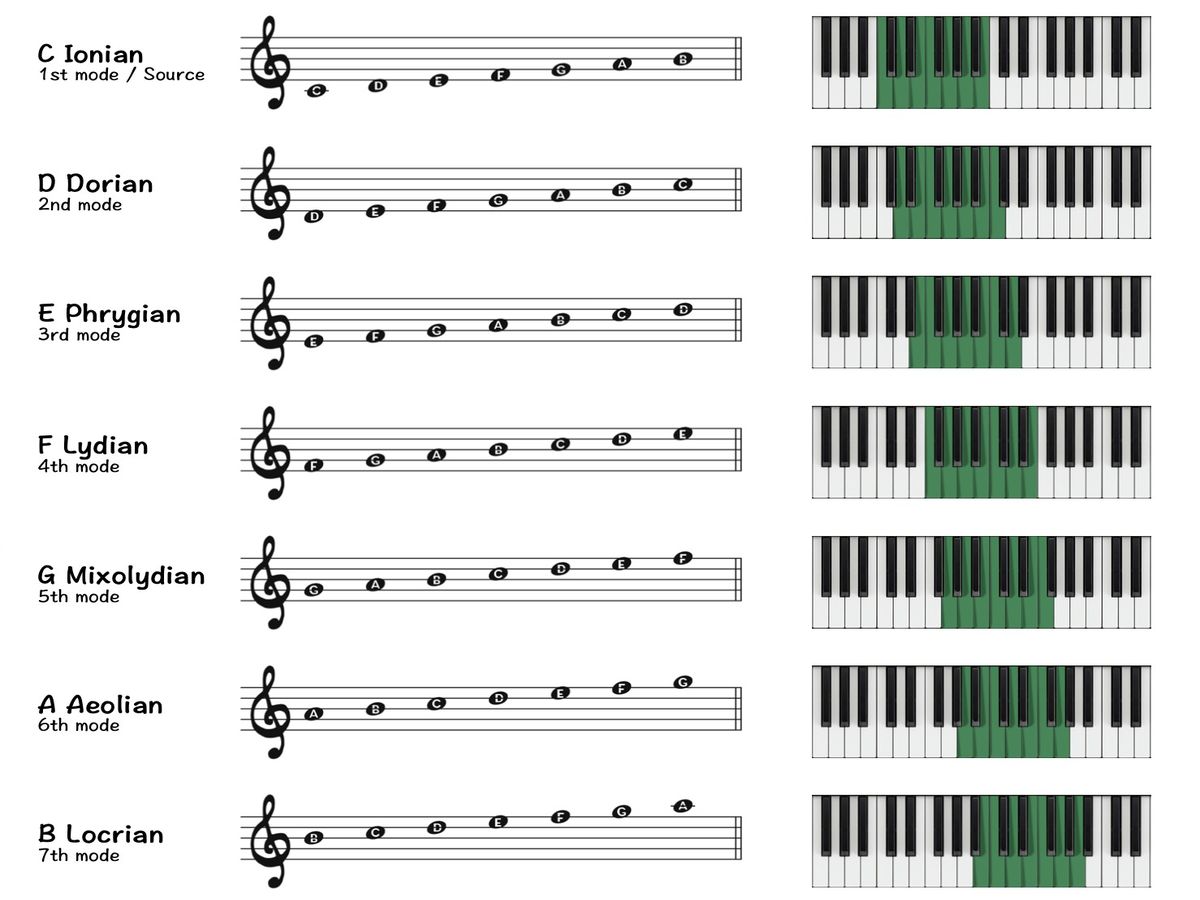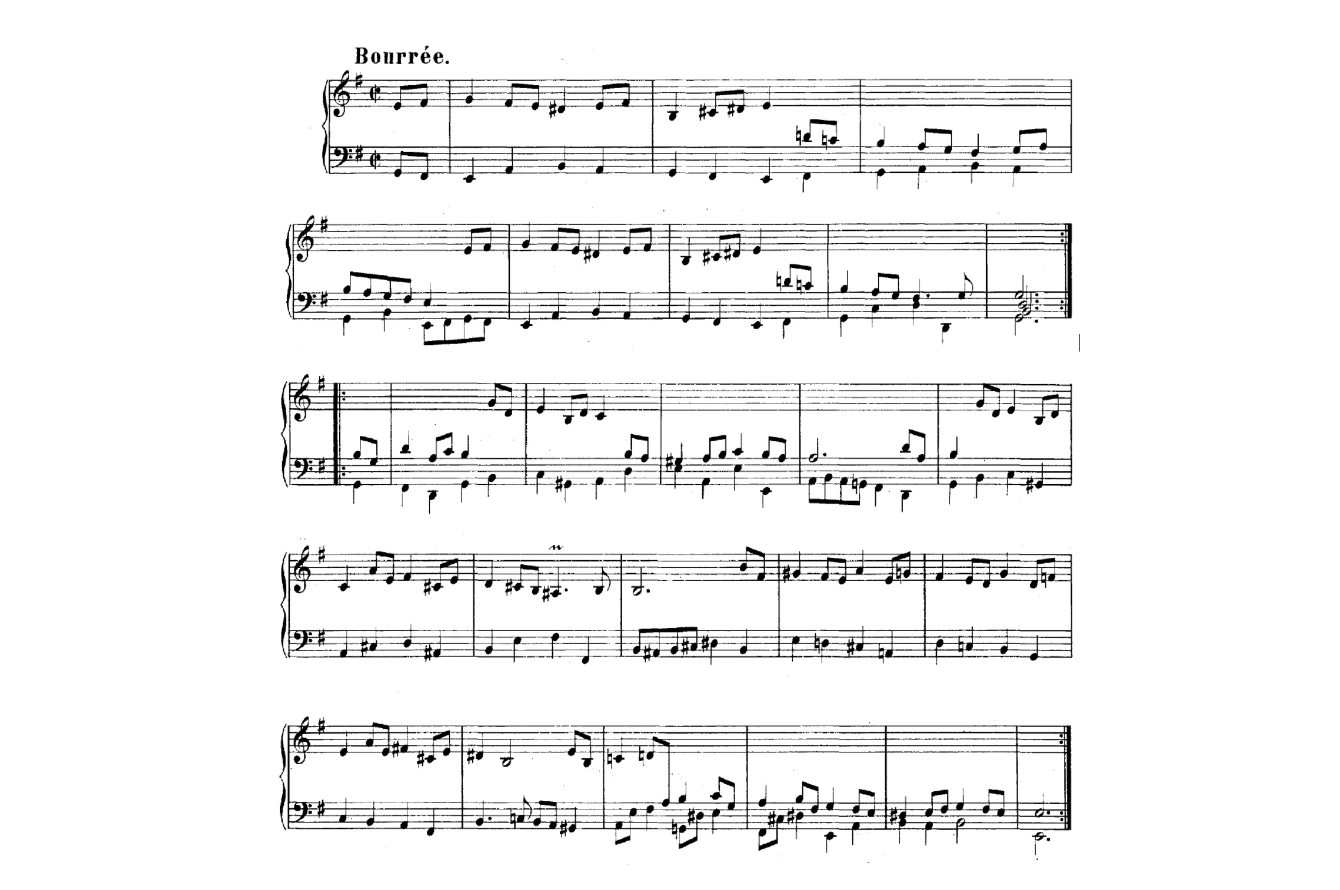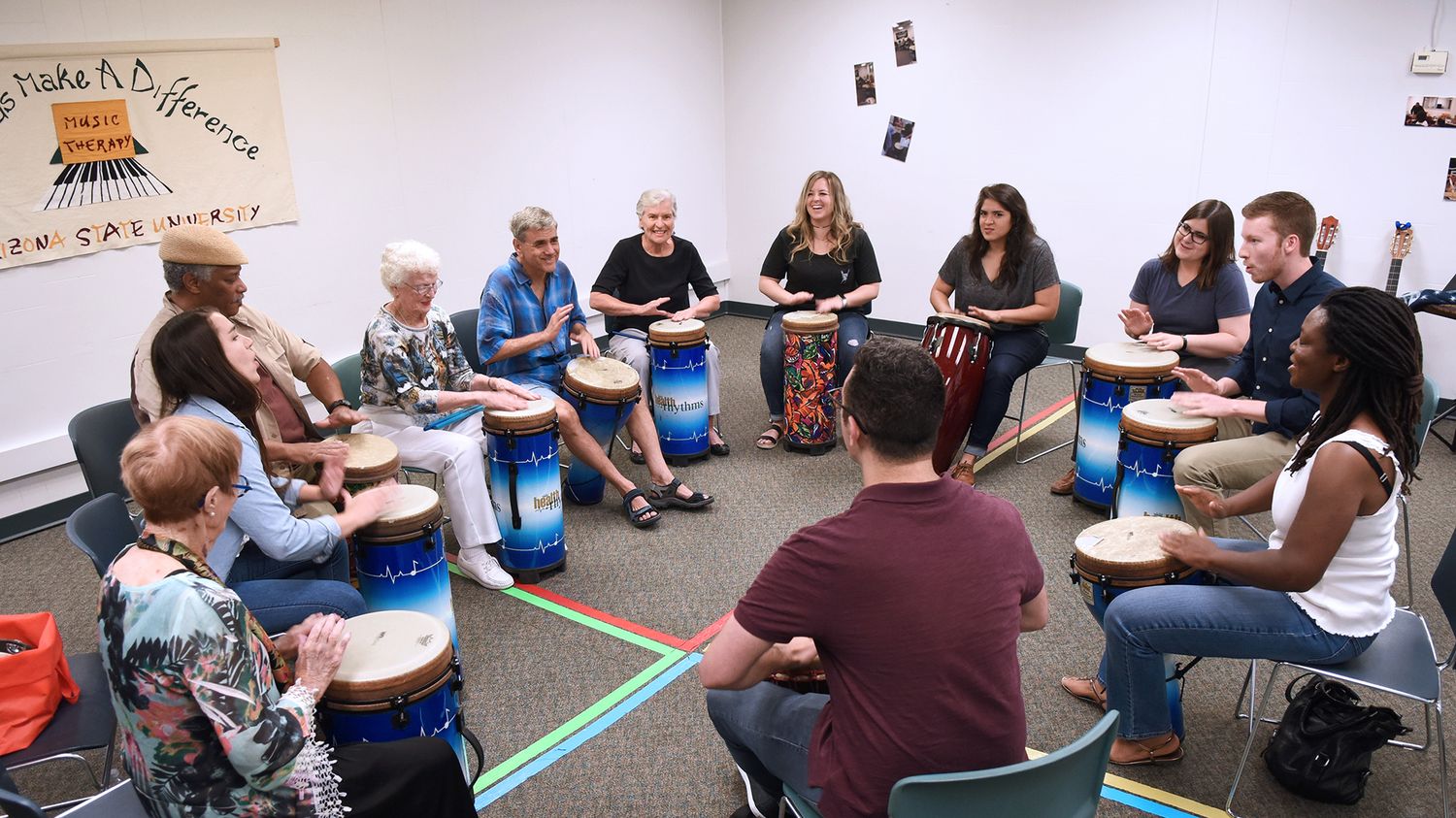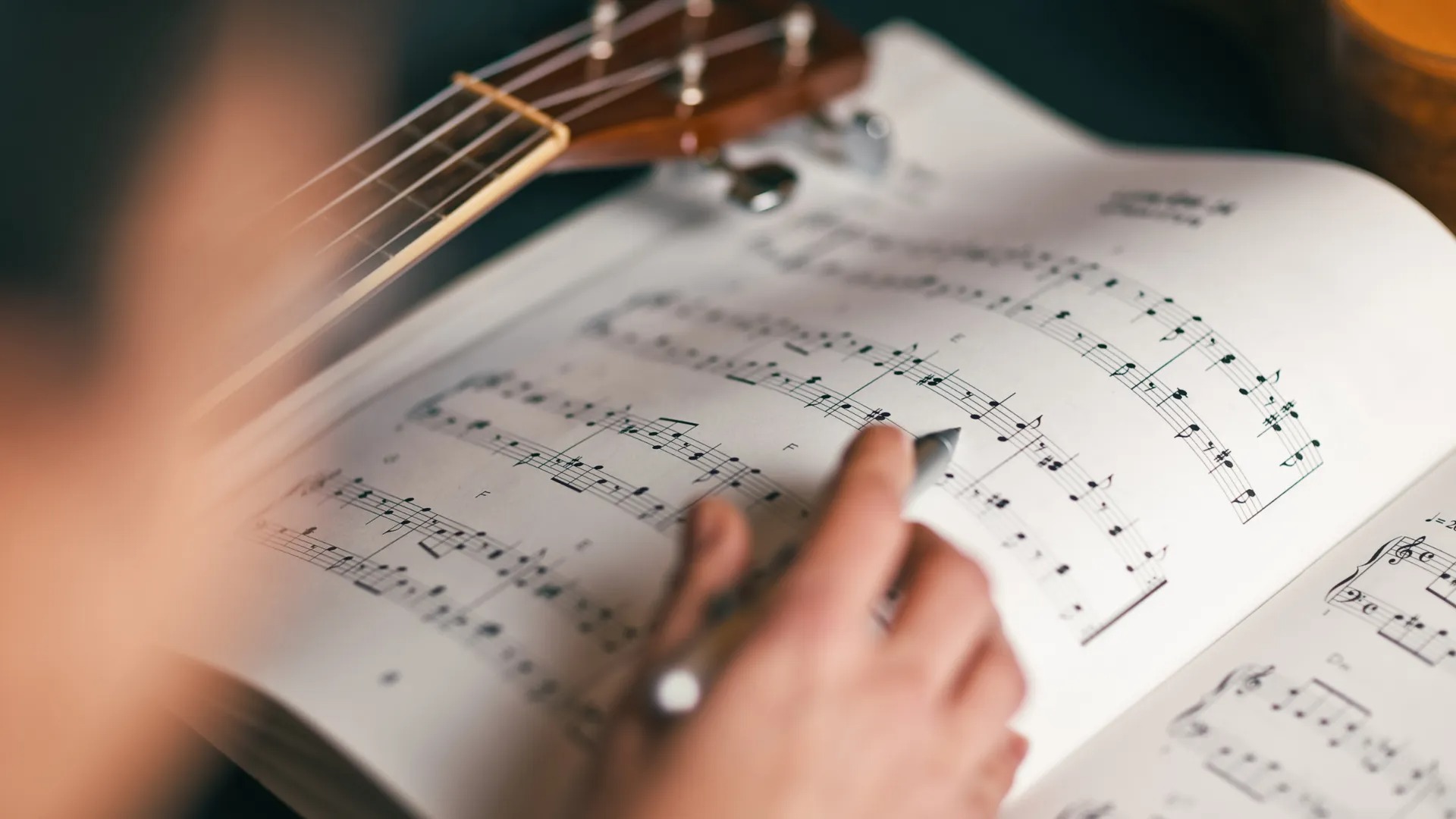Home>Production & Technology>Music Theory>What Do You Do In AP Music Theory
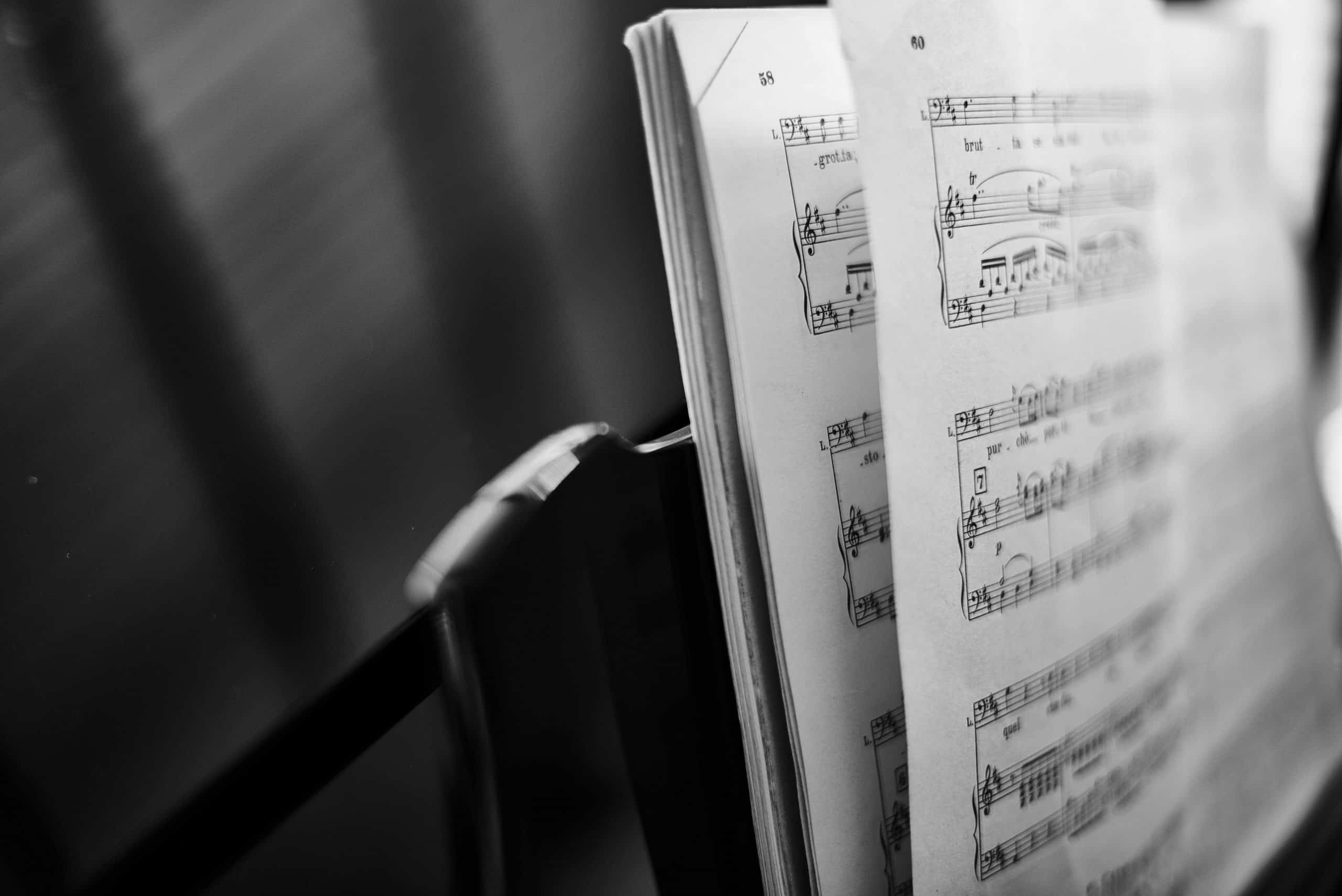

Music Theory
What Do You Do In AP Music Theory
Modified: February 1, 2024
Discover the ins and outs of AP Music Theory - from basic concepts to advanced analysis. Explore our comprehensive curriculum and gain a deeper understanding of music theory.
(Many of the links in this article redirect to a specific reviewed product. Your purchase of these products through affiliate links helps to generate commission for AudioLover.com, at no extra cost. Learn more)
Table of Contents
Introduction
AP Music Theory is a rigorous academic course designed to develop a deeper understanding of music theory concepts and skills. It is a college-level course offered to high school students who possess a strong interest in music and a desire to expand their musical knowledge.
The study of music theory is essential for anyone who wants to become a proficient musician or pursue a career in music. It provides the foundation for understanding the structure and composition of music, enabling musicians to analyze and interpret musical pieces with greater depth and precision.
AP Music Theory goes beyond the basics of music theory covered in introductory music classes. It delves into more advanced topics such as harmonic analysis, counterpoint, and composition. The course equips students with the tools and techniques necessary to analyze, notate, and create music at an advanced level.
In this article, we will explore the curriculum and course structure of AP Music Theory, the fundamental music concepts covered, and the importance of sight singing and aural skills in the course. We will also delve into the analysis and composition components of the course, preparing for the AP Music Theory exam, and the potential career paths that can be pursued with a strong foundation in music theory.
Whether you have a passion for playing an instrument, singing, composing, or studying music academically, AP Music Theory can be a transformative experience that takes your musical abilities and understanding to new heights. So, let’s dive in and discover the exciting world of AP Music Theory!
Overview of AP Music Theory
AP Music Theory is a comprehensive course that covers a wide range of musical concepts and skills. The course aims to develop students’ abilities in music theory, aural skills, sight singing, and music analysis. It offers a challenging and enriching experience for students who are passionate about music and wish to deepen their understanding of its theory and composition.
The course typically spans one academic year and is divided into multiple units, each focusing on different aspects of music theory. Students are introduced to the fundamentals of music, including notation, scales, keys, chords, and rhythmic patterns. As the course progresses, students delve into more complex topics such as chord progression, harmony, voice leading, and musical form.
In addition to theoretical concepts, AP Music Theory also emphasizes practical skills. Students develop their aural skills, which involve identifying and analyzing musical elements by ear. This includes recognizing intervals, chord progressions, and melodic patterns by listening to musical excerpts. Aural skills are crucial for musicians as they allow for a deeper understanding and interpretation of music.
Another essential component of AP Music Theory is sight singing. Through sight singing exercises, students learn to read and sing music notation on sight. This skill enables musicians to perform new pieces of music accurately and confidently, enhancing their overall musical proficiency.
The course also includes opportunities for students to develop their composition skills. They learn the principles of musical composition, explore different styles and genres, and compose their own musical pieces. This not only fosters creativity but allows students to apply their theoretical knowledge in a practical and meaningful way.
Throughout the course, students engage in hands-on activities, such as analyzing and transcribing musical pieces, completing written exercises, and participating in discussions and group projects. Regular assessments and quizzes help track students’ progress and ensure they have a solid understanding of the concepts covered.
Successful completion of AP Music Theory can lead to college credit, as many colleges and universities recognize the course and grant placement or credit for achieving a qualifying score on the AP Music Theory exam. It is also a valuable asset for students looking to pursue further studies in music or related fields.
Next, we will take a closer look at the specific topics covered in the AP Music Theory curriculum and the skills that students develop throughout the course.
Curriculum and Course Structure
The AP Music Theory curriculum is designed to provide students with a comprehensive understanding of music theory and develop their analytical, aural, and compositional skills. It covers a wide range of topics and is structured to gradually build upon foundational concepts throughout the course.
The curriculum is typically divided into units, each focusing on a specific aspect of music theory. Common units include notation and basic music theory, scales and keys, harmony and chord progressions, melody and counterpoint, and musical form and analysis. These units are usually taught in a sequential manner, with new concepts and skills building upon those previously learned.
Within each unit, students engage in various activities to reinforce their understanding of the material. This includes listening exercises, sight singing practice, analyzing musical excerpts, and creating compositions in different styles and genres. In addition to these hands-on activities, students are often assigned readings and written assignments to deepen their theoretical knowledge.
In terms of course structure, AP Music Theory classes typically meet regularly throughout the school year. The exact frequency and duration of class meetings may vary depending on the school and teacher. However, it is common for classes to meet several times a week for approximately 45 to 60 minutes per session.
As with any AP course, there is an emphasis on independent study and homework assignments. Students are expected to dedicate time outside of class to review and practice the concepts covered, complete assignments, and prepare for assessments and exams.
Assessments in AP Music Theory are multifaceted and include a combination of written exams, performance assessments, listening exams, sight singing evaluations, and composition projects. These assessments gauge students’ understanding of theoretical concepts, their ability to apply their knowledge to real musical examples, and the development of their practical skills.
In addition to the regular coursework, students also prepare for the AP Music Theory exam, which is administered by the College Board. The exam takes place in May and consists of both multiple-choice and free-response sections. The multiple-choice section tests students’ knowledge of music theory concepts, while the free-response section assesses their listening and compositional skills.
Overall, the curriculum and course structure of AP Music Theory provide students with a thorough and well-rounded education in music theory. It allows them to explore and understand music on a deeper level, equipping them with the skills necessary to pursue further studies in music or embark on a career in the field.
Music Fundamentals Covered
In AP Music Theory, students delve into the fundamental elements of music, which form the building blocks for understanding and analyzing musical compositions. These music fundamentals cover various aspects of rhythm, melody, harmony, and form.
At the core of music fundamentals is notation. Students learn to read and write music using standard musical notation, including symbols for notes, rests, time signatures, key signatures, and dynamics. This skill allows musicians to communicate and interpret musical ideas accurately.
A strong understanding of scales and keys is also crucial. Students explore major and minor scales, as well as various modes and other scales used in different musical styles. They learn to identify key signatures and understand how they affect the tonal center of a piece of music.
Harmony and chord progressions are essential components of music theory. Students study the principles of chord construction, including triads, seventh chords, and extended chords. They learn to analyze and identify chord progressions, explore harmonic functions, and study cadences and modulation.
Melody and voice leading are another important aspect of music fundamentals. Students analyze melodic lines, including intervals, scale patterns, and contour. They learn to construct effective melodies, paying attention to voice leading and the smoothness of melodic movement.
The understanding of musical form is crucial for analyzing and interpreting compositions. Students learn the structures commonly used in different musical genres, such as binary form, ternary form, rondo form, sonata form, and more. They explore the relationship between sections and how repetition, contrast, and variation contribute to the overall structure of a piece.
Rhythm is a fundamental element in music, and students study rhythmic notation and patterns. They learn to identify and notate various rhythmic values, such as whole notes, half notes, quarter notes, eighth notes, and beyond. Students explore meter, rhythmic subdivisions, syncopation, and different rhythmic patterns common in various musical styles.
In addition to these fundamentals, students are introduced to musical texture, dynamics, articulation, and expressive markings. They learn to interpret and convey these elements in their performance and analysis of musical pieces.
By immersing themselves in these music fundamentals, students gain a solid foundation in the language and structure of music. They develop the skills to analyze, interpret, and create music effectively, laying the groundwork for further music studies and a deeper appreciation of the art form.
Sight Singing and Aural Skills
Sight singing and aural skills are integral components of the AP Music Theory curriculum. These skills focus on developing students’ ability to perceive, analyze, and reproduce music by ear. They play a crucial role in musicianship and greatly enhance a musician’s understanding and performance of music.
Sight singing, also known as melodic dictation, involves reading and singing music notation without prior preparation. Through sight singing exercises, students learn to translate the written music into audible sounds, training their voice and ear coordination. This skill enables musicians to perform new pieces of music accurately, even without prior familiarity with the repertoire.
In sight singing, students are exposed to various musical elements such as rhythm, melody, key signatures, and intervals. They learn to identify and execute these elements accurately, following the written notation. Sight singing exercises become progressively challenging as students advance in the course, allowing them to tackle complex melodies and harmonies.
Aural skills encompass a broader range of listening abilities. Through aural skills training, students develop the ability to identify and analyze musical elements within a given piece of music. This includes recognizing intervals, chords, rhythms, chord progressions, and melodic patterns by ear.
Developing aural skills enhances a musician’s ability to understand the structural and harmonic aspects of a piece of music, enabling a deeper level of musical interpretation. It allows musicians to intuitively grasp the tonality, dynamics, and emotional expression of a composition, ultimately enriching their performance and appreciation of music.
In AP Music Theory, students engage in various aural skills activities, such as listening to musical excerpts and identifying the intervals or chords present, identifying rhythmic patterns, and analyzing the harmonic progression of a given piece. These exercises help train their ear to identify and interpret different musical elements accurately.
By incorporating sight singing and aural skills training into the AP Music Theory curriculum, students develop a heightened sensitivity to the intricacies of music. It sharpens their listening skills, enhances their ability to recognize and execute musical ideas accurately, and equips them with a more holistic understanding of music theory and composition.
Furthermore, these skills also have practical applications beyond the classroom. Musicians who possess strong sight singing and aural skills are well-equipped for professional music settings, including ensemble performances, auditions, and improvisation.
Overall, sight singing and aural skills are essential components of AP Music Theory, allowing students to deepen their musical understanding, interpretation, and performance abilities.
Analysis and Composition
Analysis and composition are two interconnected aspects of AP Music Theory that allow students to delve deeper into the structure, form, and creative expression of music. These components provide students with the tools and knowledge to analyze existing musical works and to create their own compositions.
Analysis involves dissecting a piece of music to uncover its underlying structure, harmonic progressions, melodic patterns, and formal elements. Through analysis, students gain a deeper understanding of how composers construct music and express their artistic intentions. They learn to identify key signatures, chord progressions, cadences, harmonic relationships, and formal features.
Students are given the opportunity to analyze various musical genres and styles, ranging from classical to contemporary. They study renowned compositions and examine how musical techniques contribute to the overall artistic impact. Analysis not only enhances students’ theoretical knowledge but also helps them develop a critical ear and a deeper appreciation for music as a work of art.
Composition, on the other hand, nurtures students’ creativity and imagination. They explore the principles of musical composition, such as melody, harmony, rhythm, texture, and form. Students experiment with different compositional techniques and styles, allowing them to develop their unique musical voice.
Throughout the course, students progress from simple exercises in composition to more complex and sophisticated projects. They are encouraged to unleash their creativity, express themselves through music, and engage in the process of crafting original musical works. Composition exercises may include writing melodies, harmonizing a given melody, creating chord progressions, or even composing full-scale pieces in various forms.
By engaging in both analysis and composition, students develop a well-rounded understanding of music from both a theoretical and practical perspective. Analyzing existing music helps inform their creative choices in composition, while composing empowers them to apply theoretical concepts in a hands-on and expressive manner.
Analysis and composition go hand in hand; through analyzing musical works, students gain insight into the techniques and devices used by composers, which can inspire and inform their own compositions. Conversely, composition allows students to deeply grasp the principles and strategies behind effective music creation, further enhancing their analytical skills.
Ultimately, the analysis and composition components of AP Music Theory foster creativity, critical thinking, and an appreciation for the artistry of music. They provide students with a well-rounded musical education that not only equips them with a deep understanding of music but also empowers them to express themselves musically.
Preparation for the AP Music Theory Exam
The AP Music Theory exam is a significant component of the course, as it allows students to showcase their understanding and mastery of music theory concepts and skills. Effective preparation for the exam is essential to ensure success and obtain a desirable score.
One of the key aspects of preparing for the AP Music Theory exam is thorough review and reinforcement of the course content. This involves revisiting the various units and topics covered throughout the academic year, solidifying understanding, and addressing any areas of weakness.
Regular practice is crucial in developing and refining music theory skills. Engaging in exercises that encompass a wide range of topics, such as identifying key signatures, analyzing chord progressions, sight singing, and melodic dictation, helps build confidence and proficiency in these areas.
Mock exams can also be beneficial in simulating the actual exam experience. By taking practice exams, students become familiar with the format, timing, and types of questions that may be asked. This allows them to develop effective test-taking strategies and identify areas that require further attention.
Additionally, seeking feedback from teachers or peers can greatly aid in exam preparation. Getting input on composition assignments, analysis exercises, and practice performances can provide valuable insights and suggestions for improvement.
Utilizing study resources and materials designed specifically for the AP Music Theory exam is highly recommended. There are numerous textbooks, review guides, online resources, and practice tests available that align with the exam content and format. These resources can provide additional explanations, examples, and practice opportunities to further enhance preparation.
Collaboration and peer learning can also be beneficial in exam preparation. Engaging in study groups or practicing with classmates allows for the exchange of ideas, discussion of complex concepts, and the opportunity for cooperative learning.
Time management is crucial in preparing for the AP Music Theory exam. Creating a study schedule and allocating specific time slots for review, practice, and mock exams helps ensure consistent and effective preparation leading up to the exam date.
Lastly, maintaining a positive mindset and managing stress are important factors in exam preparation. Music theory can be challenging, so it’s essential to approach the preparation process with a growth mindset, embracing challenges as opportunities for growth. Taking breaks, practicing relaxation techniques, and maintaining a healthy lifestyle are all helpful in managing stress and optimizing focus and performance.
By implementing these strategies and dedicating time and effort to exam preparation, students will be well-equipped to demonstrate their knowledge and skills on the AP Music Theory exam, ultimately setting themselves up for success in achieving their desired outcome.
Benefits of Taking AP Music Theory
Enrolling in AP Music Theory offers students a wide array of benefits that extend beyond the classroom. This rigorous course provides a solid foundation in music theory and offers numerous advantages for those who have a passion for music or are considering pursuing a career in the field.
One of the primary benefits of taking AP Music Theory is the in-depth understanding and appreciation of music that it fosters. Students develop the ability to analyze and interpret musical compositions, gaining insights into the intricacies of structure, harmony, melody, and form. This enhanced understanding allows for a deeper connection with music and enriches the overall musical experience. Individuals who have studied music theory are often able to engage with and appreciate a wide range of genres and styles, enhancing their enjoyment and understanding of music as an art form.
AP Music Theory also sharpens critical thinking and problem-solving skills. The analytical nature of the course helps students develop the ability to identify patterns, make connections, and think critically about musical concepts. These skills can be transferred to various other academic disciplines and real-world situations, fostering a well-rounded skill set that is valuable in any field of study or career.
For students considering a college education in music, AP Music Theory serves as excellent preparation. Many colleges and universities recognize AP Music Theory as a rigorous course that demonstrates a student’s commitment to the subject and their readiness for higher-level music study. Students who excel in the course may be eligible to receive college credit or advanced placement, allowing them to progress more quickly in their music studies and potentially save money on tuition.
AP Music Theory also helps develop practical skills that are highly valuable for musicians. The training in sight singing and aural skills enhances a musician’s ability to learn new music more efficiently, perform accurately, and improvise effectively. These skills are essential for musicians involved in ensembles, choirs, bands, or those pursuing solo performance careers.
Furthermore, AP Music Theory provides a solid foundation for aspiring composers. The study of harmony, melody, counterpoint, and composition techniques fosters creativity and helps students develop their unique musical voice. The skills acquired in the course allow aspiring composers to effectively communicate their musical ideas and create compelling and original musical works.
Overall, the benefits of taking AP Music Theory extend beyond the academic realm. It nurtures a deeper understanding and appreciation for music, sharpens critical thinking skills, prepares students for post-secondary music education, and equips musicians and composers with practical skills for meaningful careers in the music industry. Whether pursuing a career in music or simply cultivating a lifelong love for music, AP Music Theory offers a valuable and enriching experience for passionate students.
Potential Career Paths in Music
Studying music, including AP Music Theory, opens up a world of diverse career opportunities within the music industry. While pursuing a career in music often requires dedication and perseverance, the skills and knowledge gained through music education can lead to a fulfilling and rewarding professional journey.
One potential career path is becoming a professional musician. Musicians can specialize in various instruments or vocal performance and pursue careers as solo performers, members of orchestras, bands, or chamber ensembles. Additionally, opportunities exist for session musicians, who collaborate with other artists on recordings or live performances.
The field of music production and recording offers another avenue for a music career. Music producers work in recording studios, guiding artists through the process of creating and recording music. They oversee the technical aspects, such as sound engineering and mixing, to create high-quality recordings.
Music education is another prominent career path. With AP Music Theory as a solid foundation, individuals can become music teachers at elementary, middle, or high schools, sharing their passion for music and inspiring the next generation of musicians. Furthermore, private music instruction is in high demand, providing opportunities for independent music teachers.
Music therapy is a growing field that combines the power of music with therapeutic techniques to improve the well-being and quality of life of individuals. Music therapists work in various settings, such as hospitals, rehabilitation centers, and schools, using music to address physical, emotional, and cognitive needs of their clients.
For those interested in the business side of the music industry, careers in artist management, music publishing, talent agencies, and event management offer exciting opportunities. These roles involve discovering and representing artists, negotiating contracts, promoting concerts and tours, and managing the business aspects of a musician’s career.
A career in composing and arranging music is another possibility. Composers create original music for various mediums such as film, television, video games, and advertising. Arrangers work on adapting existing music and creating new arrangements for different instrumental or vocal groups.
The field of music journalism and criticism provides avenues for those with strong writing and communication skills. Music critics write reviews and articles about music performances, albums, and trends, sharing their insights and opinions with the public. Music journalists cover news and feature stories about the music industry and its artists.
Moreover, music technology and audio engineering offer careers focused on the technical aspects of music production and sound design. These professionals work with advanced equipment and software to create high-quality recordings, mix and master audio, and design sound for various media platforms.
Lastly, music research and academia present opportunities for those interested in advancing music knowledge through research and teaching. Musicologists and music researchers delve into historical and theoretical studies, while music professors educate and inspire future generations of musicians.
It’s important to note that the music industry is highly competitive, and success often requires a combination of talent, hard work, perseverance, and networking. However, a strong foundation in music theory, cultivated through AP Music Theory and further music education, provides a solid platform to begin a successful and fulfilling career in the multifaceted world of music.
Conclusion
The study of AP Music Theory offers students a comprehensive and in-depth understanding of music theory concepts, aural skills, analysis, and composition. The course provides a solid foundation for aspiring musicians, composers, music educators, and professionals in various fields within the music industry.
Through AP Music Theory, students develop a deep appreciation for music, expanding their knowledge of music fundamentals, including notation, scales, keys, harmony, and rhythm. The emphasis on sight singing and aural skills sharpens their ability to perceive and reproduce music by ear, enhancing their overall musicianship. The analysis and composition components allow students to delve deeply into the structure and creative process of music, enabling them to analyze existing compositions and create their own musical works.
Preparation for the AP Music Theory exam hones students’ skills and knowledge, preparing them for success on the exam and potentially earning college credit or advanced placement. The benefits of taking AP Music Theory extend beyond the classroom, fostering critical thinking skills, enhancing creativity, and equipping students for a wide range of careers in the music industry.
From becoming professional musicians, music educators, and music therapists to pursuing careers in music production, composition, music journalism, and more, the opportunities in music are vast and diverse. AP Music Theory serves as a stepping stone towards these career paths, providing a strong foundation and igniting a lifelong passion for music.
In conclusion, AP Music Theory offers students a pathway to a deeper understanding and appreciation of music, developing their theoretical knowledge, practical skills, and creative abilities. It opens doors to a wealth of opportunities in the music industry, paving the way for a rewarding and fulfilling career journey in the world of music. AP Music Theory is not only a valuable academic pursuit but also an enriching experience that shapes the way students perceive, create, and connect with music for years to come.

